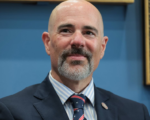Just months into a pivotal phase for Minnesota’s cannabis industry, Charlene Briner, the interim director of the Office of Cannabis Management (OCM), has announced her resignation. Her departure raises questions about the timeline for the state’s adult-use cannabis sales, which remain undefined nearly 19 months after legalization was signed into law.
A Shaky Start and Leadership Challenges
Charlene Briner assumed the role of interim director in June 2023, following Gov. Tim Walz’s signing of legislation that made Minnesota the 23rd state to legalize adult-use cannabis. Briner, who previously held leadership roles in Minnesota’s Department of Education and Department of Human Services, was initially tasked with building the OCM from scratch—a monumental undertaking.
Her temporary role appeared more permanent when Erin DuPree, appointed as the official director in September 2023, withdrew just a day after her nomination. Media reports revealed that DuPree’s hemp shop, Loonacy Cannabis Co., had sold products that violated state law, leaving Walz to admit, “I own this one.”
Since then, Briner has led the office, but her departure, effective January 17, 2025, leaves the position once again vacant, with no permanent director in sight. The governor has named Eric Taubel, OCM’s general counsel, as the next interim leader.

Achievements Amidst Setbacks
Despite leadership turmoil, Briner oversaw key developments in establishing Minnesota’s cannabis regulatory framework. These included:
- Building a team of more than 100 staff members for the OCM.
- Leading rulemaking processes for the state’s adult-use cannabis market.
- Developing compliance measures for the hemp-derived cannabinoid product market.
- Introducing revised licensing cycles for cannabis businesses.
Briner’s leadership also guided Minnesota’s unique approach to creating a smaller, craft-focused cannabis market rather than relying on larger operators. However, challenges such as a lawsuit over a preapproval license lottery for social equity applicants stalled progress, adding to the industry’s uncertainty.
A Delayed Market Launch
One of the most pressing issues remains the timeline for adult-use cannabis sales. Briner’s cautious optimism in a recent interview suggested sales could begin before the end of 2025. This timeline would position Minnesota’s rollout as one of the slowest in the nation, taking 763 to 946 days from legalization to implementation.
By comparison, most states with legal cannabis markets transitioned more swiftly, often leveraging existing medical marijuana infrastructures to jumpstart adult-use sales. Minnesota, however, opted to build its system “from the ground up,” a decision that has drawn both praise for its thoughtful approach and criticism for its slow pace.
Social Equity Efforts and Tribal Partnerships
Minnesota’s cannabis law emphasizes social equity, aiming to provide opportunities for individuals from communities disproportionately affected by cannabis prohibition. Despite setbacks with the licensing process, the OCM is incorporating social equity awards into revised lottery systems slated for mid-2025.
Tribal partnerships have also played a significant role in the early stages of Minnesota’s cannabis market. Dispensaries on tribal lands, including those operated by the Prairie Island Indian Community, Red Lake Nation, and White Earth Nation, have been the only legal outlets for cannabis sales in the state to date.
What’s Next for the OCM?
With Briner’s departure imminent, the office faces mounting pressure to finalize regulations and expedite the licensing process. Eric Taubel, who has been integral to drafting regulations and negotiating tribal compacts, will take the reins temporarily. His leadership will be closely watched as stakeholders await clarity on when the broader adult-use market will open.
Gov. Walz expressed gratitude for Briner’s contributions, noting that she laid the foundation for Minnesota’s cannabis industry. However, the state’s ability to meet its ambitious goals hinges on securing a permanent director and overcoming legal and logistical hurdles.
Minnesota residents and potential market participants are left waiting, with hope that the groundwork laid so far will eventually lead to a fair, accessible, and functional cannabis industry.
David Johnson is a respected writer known for his expertise in crafting compelling articles about cannabis. With a passion for exploring the intersection of cannabis, health, and wellness, he sheds light on the therapeutic properties and potential uses of this versatile plant. David’s in-depth analysis and thought-provoking commentary offer readers a deeper understanding of the evolving landscape of cannabis legislation, consumption methods, and industry trends.








